The Role of Vermiculture in Eco-friendly Agriculture
In today's world, where environmental concerns are at the forefront of agricultural discussions, vermiculture has emerged as a beacon of hope for sustainable farming practices. This innovative method, which utilizes earthworms to break down organic waste, is not just about composting. It represents a fundamental shift towards more eco-friendly agricultural techniques that can rejuvenate our soil, enhance crop yields, and reduce reliance on harmful chemicals. Imagine a lush, thriving farm where the soil is alive with activity, and every plant is nourished by nature's finest fertilizer—this is the promise of vermiculture.
Vermiculture, at its core, is the cultivation of earthworms for the purpose of composting organic materials. But why should we care about worms? Well, these little creatures are nature's recyclers, transforming kitchen scraps, agricultural waste, and other organic materials into nutrient-rich compost known as vermicompost. This process not only diverts waste from landfills but also enriches the soil, making it more fertile and productive. The significance of vermiculture in sustainable agriculture cannot be overstated; it is a practice that embodies the principles of circular economy by turning waste into a valuable resource.
Furthermore, vermiculture aligns perfectly with the growing trend of organic farming. As consumers become more aware of the environmental impact of conventional farming practices, the demand for organic produce is skyrocketing. By adopting vermiculture, farmers can tap into this lucrative market while simultaneously contributing to environmental conservation. It's a win-win situation that supports both the farmer's bottom line and the health of our planet.
In summary, vermiculture is not just a method of composting; it is a revolutionary approach to agriculture that enhances soil health, promotes sustainability, and supports economic viability. It encourages us to rethink our relationship with waste and to see the potential for regeneration in what we often consider refuse. As we continue to explore the role of vermiculture in eco-friendly agriculture, we uncover a pathway to not only feed the world but to do so in a way that respects and nurtures our environment.
- What is vermiculture? Vermiculture is the practice of cultivating earthworms for composting organic waste and enriching soil.
- How does vermicomposting benefit the environment? It reduces landfill waste, enhances soil health, and decreases the need for chemical fertilizers, promoting a sustainable ecosystem.
- Can anyone practice vermiculture? Yes! Vermiculture can be implemented by farmers, gardeners, and even individuals at home, making it accessible to everyone.
- What materials can be composted with vermiculture? Kitchen scraps, yard waste, and other organic materials are ideal for vermicomposting.
- Is vermicomposting cost-effective? Absolutely! It can lower costs associated with chemical fertilizers and waste disposal, providing significant savings for farmers.
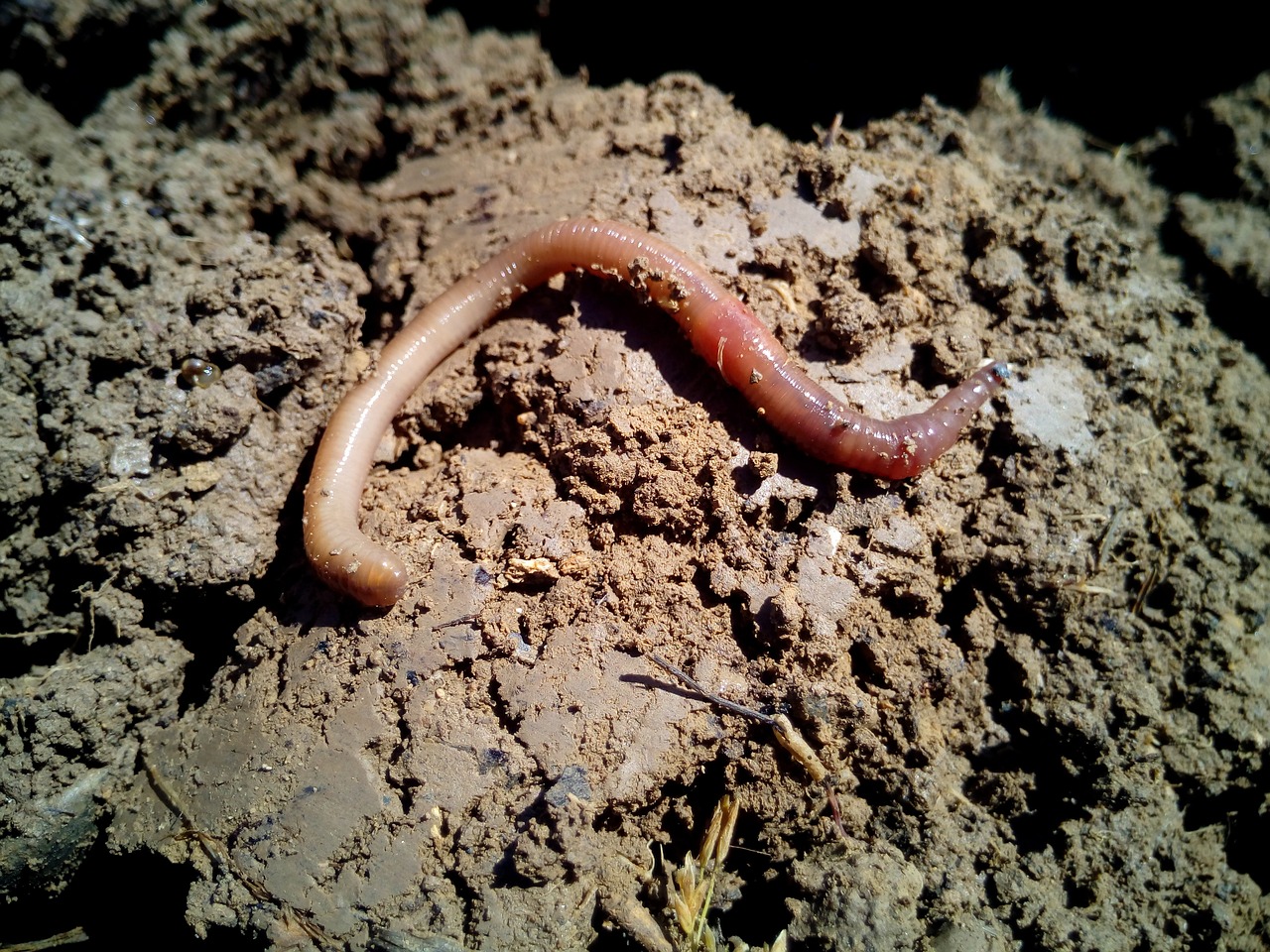
Understanding Vermiculture
This article explores how vermiculture, the practice of using worms for composting, contributes to sustainable farming practices, enhances soil health, and promotes environmental conservation.
Vermiculture is not just a fancy term; it’s a revolutionary practice that involves the cultivation of earthworms specifically for the purpose of organic waste management and soil enrichment. Imagine these little wriggly creatures as nature’s recyclers, turning kitchen scraps and garden waste into gold for your soil! This method has gained significant traction in the realm of sustainable agriculture, and for good reason. By utilizing worms, farmers can effectively manage waste while simultaneously improving the health of their soil.
At its core, vermiculture is about harnessing the natural processes of decomposition. Earthworms consume organic matter, and through their digestion, they produce vermicompost, a nutrient-rich fertilizer that is teeming with beneficial microbes. This process not only reduces the volume of waste that ends up in landfills but also enhances the nutrient profile of the soil, making it more fertile and productive. Think of it as a win-win scenario where both the environment and the farmer benefit.
Vermiculture can be implemented on various scales, from small home gardens to large agricultural operations. The key is understanding the needs of your soil and the type of organic waste you have. For instance, while kitchen scraps like fruit and vegetable peels are excellent for worm composting, it’s crucial to avoid certain materials like meat and dairy, which can attract pests and create odors. Here’s a quick overview of what can be composted:
- Fruit and vegetable scraps
- Coffee grounds and filters
- Eggshells
- Shredded paper and cardboard
By adopting vermiculture, farmers can tap into an ancient practice that aligns perfectly with modern sustainable farming principles. It’s about creating a circular economy where waste is minimized, and resources are reused. In this way, vermiculture stands as a testament to the idea that nature knows best, and by working with it, we can achieve remarkable results.
Vermicomposting transforms organic waste into nutrient-rich fertilizer, improving soil structure and fertility while minimizing landfill waste, thereby promoting a circular economy.
The introduction of vermicompost enhances microbial activity in the soil, leading to improved nutrient availability and better plant growth, which is essential for eco-friendly agriculture.
Vermicomposting increases microbial diversity in the soil, which plays a crucial role in nutrient cycling and plant health, ultimately supporting sustainable farming practices.
The organic matter from vermicompost helps improve soil aeration and water retention, creating a more conducive environment for plant roots and beneficial organisms.
Utilizing vermicompost can significantly reduce the reliance on chemical fertilizers, promoting healthier crops and reducing the risk of soil and water contamination.
Vermiculture not only supports environmental sustainability but also offers economic benefits to farmers through reduced input costs and increased crop yields.
Implementing vermiculture can lower costs associated with chemical fertilizers and waste disposal, providing farmers with a more sustainable financial model.
The growing demand for organic produce creates market opportunities for farmers who adopt vermiculture practices, enhancing their profitability and market competitiveness.
What is vermiculture?
Vermiculture is the practice of cultivating earthworms to decompose organic waste and produce nutrient-rich compost.
How does vermicomposting work?
Worms consume organic waste and excrete it as vermicompost, which is rich in nutrients and beneficial microbes.
Can I use vermicompost in my garden?
Absolutely! Vermicompost is an excellent natural fertilizer that can enhance soil health and boost plant growth.
What types of waste can I compost with worms?
You can compost fruit and vegetable scraps, coffee grounds, eggshells, and shredded paper, among other things. Avoid meat and dairy products.
Is vermiculture cost-effective?
Yes! It can significantly reduce costs associated with chemical fertilizers and waste disposal, making it a financially sustainable practice.
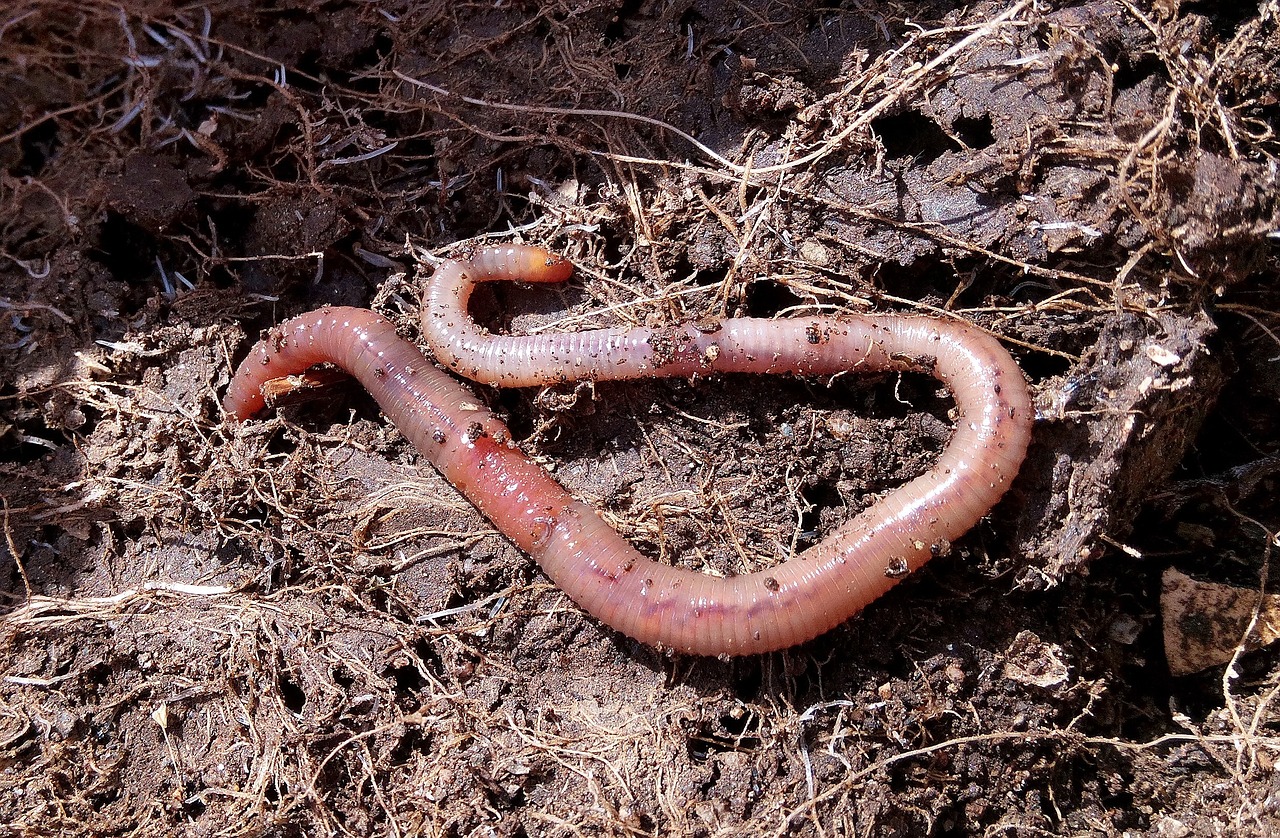
Benefits of Vermicomposting
Vermicomposting is not just a trendy term; it’s a revolutionary approach to managing organic waste that brings a multitude of benefits to the table. By harnessing the natural abilities of worms, we can transform kitchen scraps, yard waste, and other organic materials into a nutrient-rich fertilizer that does wonders for the soil. This process not only enriches the soil but also plays a pivotal role in creating a sustainable agricultural ecosystem. Imagine turning your food waste into black gold that feeds your plants—how amazing is that?
One of the key benefits of vermicomposting is its ability to improve soil structure and fertility. The vermicompost produced is packed with essential nutrients and beneficial microorganisms that enhance the soil's health. This organic matter helps to create a more stable soil structure, which in turn improves aeration and promotes better water retention. Think of it as giving your plants a cozy blanket that keeps them warm and nourished. As a result, plants grow stronger and healthier, leading to higher yields and better quality produce.
Moreover, vermicomposting has a significant impact on reducing landfill waste. Every year, millions of tons of organic waste end up in landfills, contributing to greenhouse gas emissions and environmental degradation. By composting these materials with worms, we not only divert waste from landfills but also promote a circular economy. This means that instead of throwing away our organic waste, we can recycle it back into the soil, creating a sustainable cycle of growth and replenishment.
Another advantage worth mentioning is the reduction of chemical fertilizer use. Farmers often rely on chemical fertilizers to boost crop production, but these can lead to soil degradation and water contamination over time. By utilizing vermicompost, farmers can significantly cut down on their chemical inputs, which not only benefits the environment but also leads to healthier crops. The natural nutrients in vermicompost are released slowly, providing a steady supply of nourishment to plants without the harmful side effects associated with synthetic fertilizers.
In summary, the benefits of vermicomposting are both extensive and impactful. From enhancing soil health to reducing waste and chemical dependency, this eco-friendly practice is a game-changer for sustainable agriculture. As we continue to face environmental challenges, adopting practices like vermicomposting can pave the way for a greener, healthier planet.
- What is vermicomposting? Vermicomposting is the process of using worms to decompose organic waste, turning it into nutrient-rich compost.
- How does vermicomposting benefit the environment? It reduces landfill waste, decreases the need for chemical fertilizers, and enhances soil health.
- Can I use vermicompost for all types of plants? Yes, vermicompost is beneficial for a wide variety of plants, including vegetables, flowers, and shrubs.
- How can I start vermicomposting at home? You can start by setting up a worm bin with kitchen scraps and bedding materials like shredded paper or leaves.
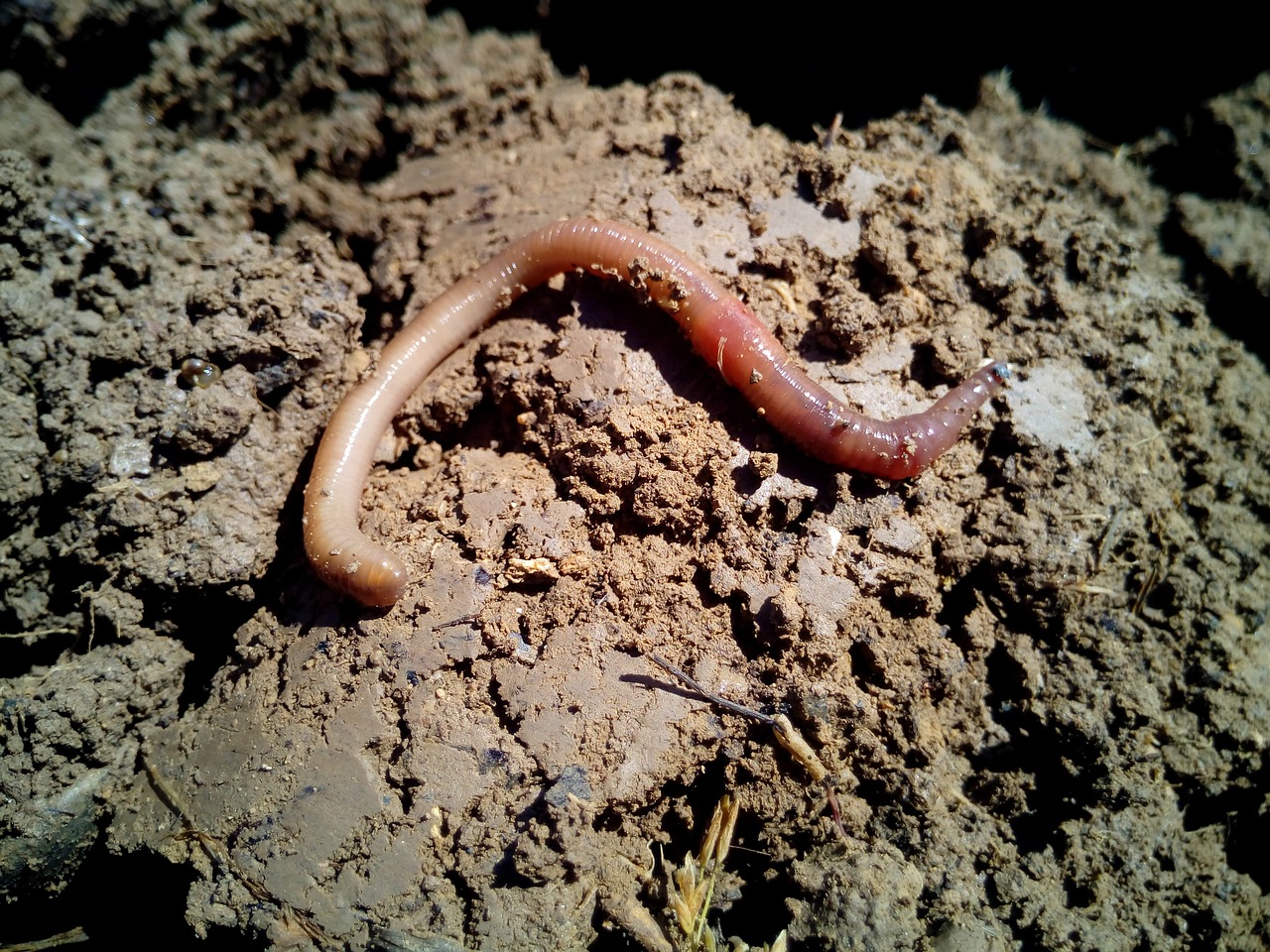
Enhancing Soil Health
When it comes to eco-friendly agriculture, the health of the soil is paramount. Imagine soil as the foundation of a house; without a solid base, everything built on top is at risk. Vermicomposting, the process of using worms to break down organic waste into nutrient-rich compost, plays a crucial role in enhancing soil health. This method not only enriches the soil but also supports a thriving ecosystem beneath our feet. By introducing vermicompost into the soil, farmers can witness a remarkable transformation that promotes sustainable agricultural practices.
One of the most significant benefits of vermicomposting is its ability to boost microbial activity in the soil. The presence of earthworms and their castings introduces a diverse range of microorganisms that are vital for nutrient cycling. These microorganisms work tirelessly to break down organic matter, releasing essential nutrients that plants need to grow. As a result, crops become healthier and more resilient, leading to improved yields. In fact, studies have shown that soils enriched with vermicompost can have up to 50% more microbial activity compared to conventional soils.
Moreover, the enhanced microbial diversity brought about by vermicomposting is akin to adding a variety of spices to a dish; it elevates the flavor and makes it more appealing. This diversity is crucial for maintaining soil health as it helps in the breakdown of different types of organic materials, ensuring that plants receive a balanced diet of nutrients. Additionally, the microorganisms contribute to the formation of soil aggregates, which improve soil structure and aeration. A well-structured soil not only supports healthy root development but also increases its capacity to retain moisture, making it more resilient to drought conditions.
Another key aspect of vermicomposting is its impact on soil structure. The organic matter derived from worm castings acts like a sponge, enhancing the soil's ability to hold water and nutrients. This is especially important in regions prone to drought, as it reduces the need for frequent irrigation. With improved water retention, plants can access moisture more efficiently, leading to stronger growth and reduced stress during dry spells. Furthermore, the aeration provided by vermicompost allows for better root penetration, ensuring that plants can establish themselves firmly in the ground.
To sum it up, enhancing soil health through vermicomposting is not just a trend; it's a necessity for sustainable agriculture. By fostering a rich microbial ecosystem and improving soil structure, vermiculture paves the way for healthier crops and a more resilient agricultural system. As farmers embrace these practices, they’re not only contributing to their own success but also to the greater goal of environmental conservation.
- What is vermicomposting? Vermicomposting is the process of using earthworms to decompose organic waste, turning it into nutrient-rich compost.
- How does vermicomposting improve soil health? It enhances microbial activity, increases nutrient availability, and improves soil structure.
- Can vermicomposting reduce the need for chemical fertilizers? Yes, utilizing vermicompost can significantly decrease reliance on chemical fertilizers, promoting healthier crops.
- Is vermiculture economically beneficial for farmers? Absolutely! It can lower input costs and increase crop yields, offering a sustainable financial model.
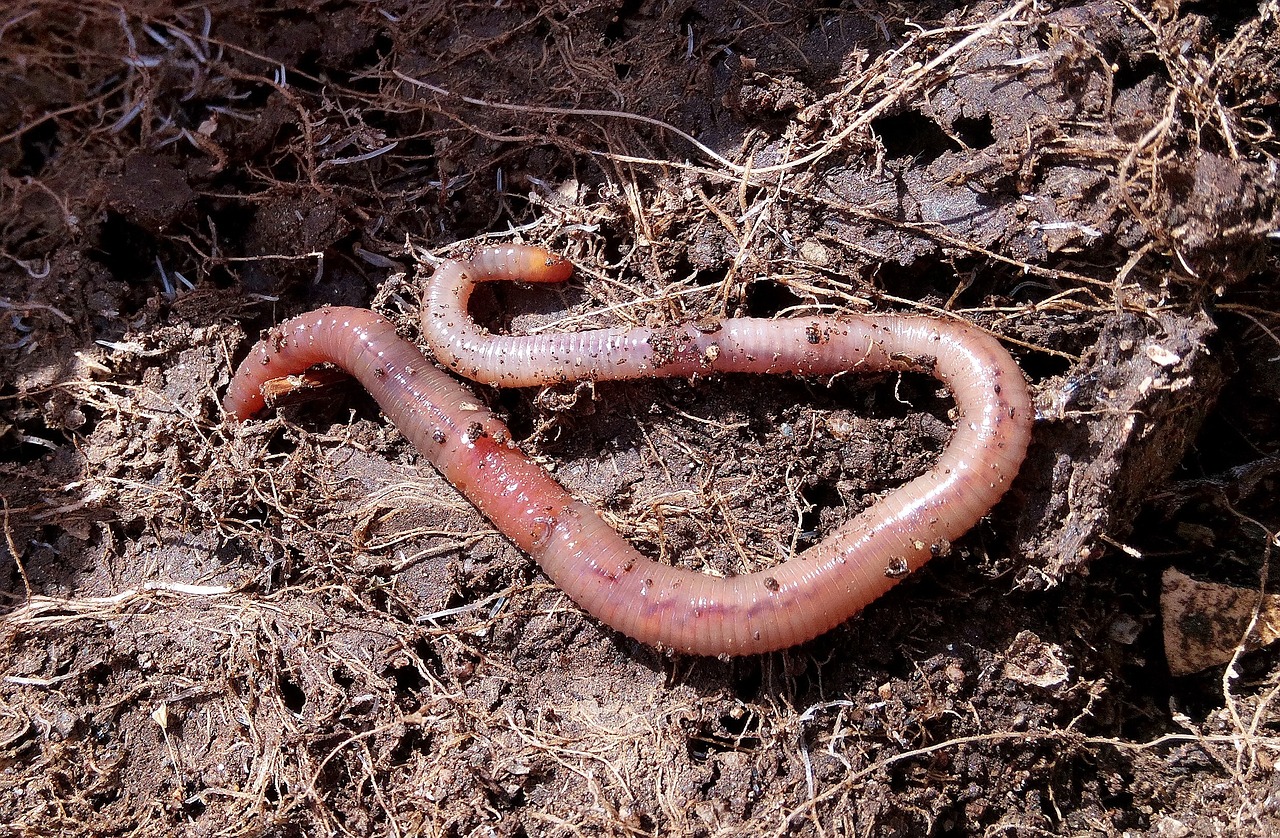
Microbial Diversity
When we talk about , we're diving into a fascinating world that plays a crucial role in the health of our ecosystems, particularly in agriculture. Imagine the soil as a bustling city, teeming with life—each microbe is like a resident contributing to the overall well-being of this community. Vermicomposting, the practice of using worms to break down organic material, significantly enhances this microbial diversity. The introduction of worms into the composting process not only accelerates decomposition but also enriches the soil with a variety of beneficial microorganisms.
These microorganisms, including bacteria, fungi, and protozoa, work together in a complex web of interactions that help in nutrient cycling. They break down organic matter, making nutrients more accessible to plants. A diverse microbial community is essential because different microbes perform different functions. For instance, some bacteria are excellent at fixing nitrogen, while others decompose organic materials. This diversity ensures that the soil can respond to various environmental stresses, such as drought or disease, making crops more resilient.
Furthermore, research has shown that soils rich in microbial diversity can lead to healthier plants. When plants are nourished by a diverse array of microbes, they can better absorb nutrients, leading to increased growth and yield. This is particularly important in eco-friendly agriculture, where the goal is not just to produce food but to do so in a way that maintains the health of the environment. The synergy created by a diverse microbial community can also reduce the need for chemical fertilizers, as plants can naturally access the nutrients they need.
To illustrate the importance of microbial diversity in vermicomposting, consider the following table that summarizes the benefits:
| Microbial Type | Function | Benefit to Plants |
|---|---|---|
| Bacteria | Nitrogen fixation | Enhances soil fertility |
| Fungi | Decomposition of organic matter | Improves nutrient availability |
| Protozoa | Predation on bacteria | Regulates microbial populations |
In conclusion, the role of microbial diversity in vermiculture cannot be overstated. It is not just about adding worms to the soil; it’s about fostering an entire ecosystem that supports plant health and contributes to sustainable farming practices. By enhancing microbial diversity through vermicomposting, we are not only improving soil health but also paving the way for a more resilient agricultural future.
- What is vermiculture? Vermiculture is the cultivation of earthworms for the purpose of composting organic waste and enriching soil.
- How does vermicomposting improve soil health? It enhances microbial activity, improves nutrient availability, and increases soil structure.
- Can vermiculture reduce the need for chemical fertilizers? Yes, it can significantly lower the reliance on chemical fertilizers by providing natural nutrients through compost.
- What are the economic benefits of vermiculture? It reduces input costs and opens up market opportunities for organic produce.
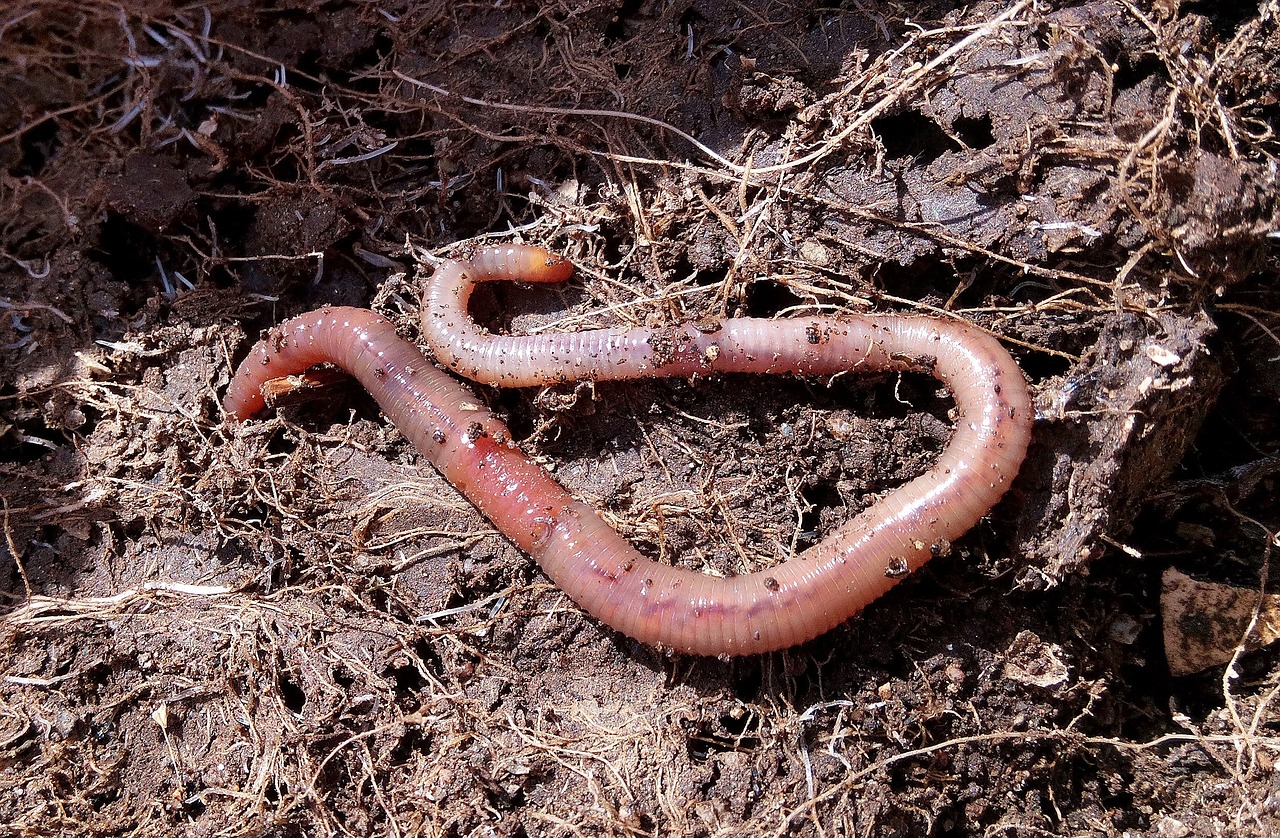
Improved Soil Structure
When we talk about , we’re diving into one of the most significant benefits of vermicomposting. Think of soil as a living organism; it thrives on balance, texture, and composition. By introducing vermicompost, we’re not just adding nutrients; we’re enhancing the soil's very architecture. This process is akin to giving a home a solid foundation—without it, everything else is at risk!
The organic matter present in vermicompost plays a crucial role in improving soil aeration and water retention. Imagine the soil as a sponge; the more porous and well-structured it is, the better it can soak up water and nutrients. This is vital for plant roots, which need access to both air and moisture to flourish. With the incorporation of vermicompost, soil becomes less compacted, allowing roots to spread out and breathe, much like how we feel more comfortable in a spacious room compared to a cramped one.
Moreover, the improved soil structure leads to a more diverse ecosystem underground. This is where the magic happens! A well-structured soil invites beneficial organisms, such as earthworms and microbes, to thrive. These tiny allies work tirelessly to break down organic matter, further enriching the soil and making nutrients more accessible to plants. It’s a beautiful cycle of life, where every component plays a role in supporting the others.
To illustrate how vermicompost enhances soil structure, consider the following table:
| Aspect | Before Vermicomposting | After Vermicomposting |
|---|---|---|
| Soil Aeration | Poor, compacted | Improved, loose |
| Water Retention | Low | High |
| Nutrient Availability | Limited | Enhanced |
| Microbial Activity | Low diversity | High diversity |
This table highlights just how transformative vermicomposting can be for soil health. Each improvement leads to better plant growth, which is essential for sustainable agriculture. In essence, when we enhance soil structure through vermiculture, we are not just improving the ground beneath our feet; we are paving the way for a greener, more sustainable future.
- What is vermicomposting? Vermicomposting is the process of using worms to decompose organic waste, turning it into nutrient-rich compost.
- How does vermicomposting improve soil structure? By adding organic matter, vermicomposting enhances soil aeration and water retention, creating a better environment for plant growth.
- Can I use vermicompost for all types of plants? Yes, vermicompost is beneficial for a wide variety of plants, enhancing their growth and health.
- Is vermicomposting expensive? No, it can be a cost-effective solution compared to traditional fertilizers, especially in the long run.
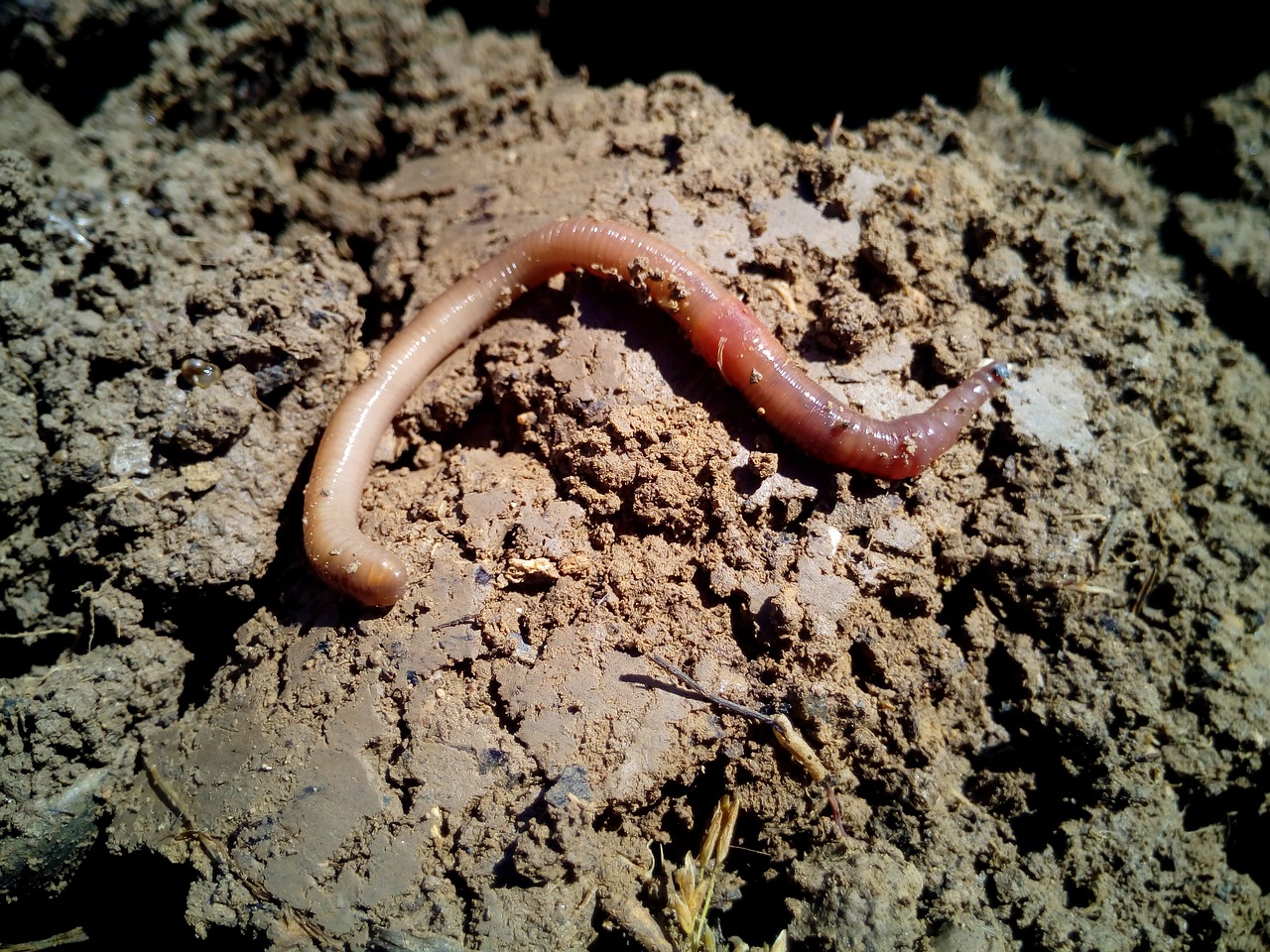
Reducing Chemical Fertilizer Use
In the realm of sustainable agriculture, the reduction of chemical fertilizer use stands as a beacon of hope for both farmers and the environment. By integrating vermicomposting into their practices, farmers can significantly minimize their dependence on synthetic fertilizers. This shift not only promotes healthier crops but also mitigates the adverse effects that chemical fertilizers can have on the soil and surrounding ecosystems. Have you ever considered how much better our planet could be if we relied less on these harsh chemicals?
One of the most compelling reasons to embrace vermiculture is its ability to enhance soil fertility naturally. Vermicompost, the end product of the composting process involving earthworms, is rich in essential nutrients that plants crave. Unlike chemical fertilizers, which often lead to nutrient runoff and soil degradation, vermicompost gradually releases nutrients, ensuring that plants receive a steady supply over time. This slow-release mechanism is akin to a well-timed marathon runner, pacing itself to finish strong rather than sprinting and burning out too quickly.
Moreover, the use of vermicompost can lead to improved soil health and structure, further reducing the need for chemical fertilizers. The organic matter found in vermicompost enhances soil aeration and water retention, creating a thriving environment for beneficial microorganisms. These microorganisms play a vital role in breaking down organic matter and making nutrients available to plants. In essence, by nurturing the soil, we are fostering a self-sustaining ecosystem that requires less external input. To illustrate this, consider the following comparison:
| Aspect | Chemical Fertilizers | Vermicompost |
|---|---|---|
| Nutrient Release | Fast release, risk of leaching | Slow release, sustained nutrient availability |
| Soil Health | Can degrade soil structure | Improves soil structure and health |
| Environmental Impact | Potential for runoff and pollution | Eco-friendly, reduces waste |
This table highlights the stark differences between chemical fertilizers and vermicompost. While chemical fertilizers may offer quick fixes, they often come with long-term consequences. On the other hand, vermicompost promotes a healthier, more resilient agricultural ecosystem.
In addition to the environmental benefits, reducing chemical fertilizer use through vermiculture can also lead to economic advantages for farmers. With lower input costs and the potential for higher crop yields, farmers can enjoy a more sustainable financial model. This is crucial in an era where market demands are shifting towards organic produce. As consumers become more aware of the benefits of organic farming, farmers who adopt vermiculture practices will find themselves at an advantage in the marketplace.
In conclusion, the integration of vermiculture into agricultural practices not only reduces the reliance on chemical fertilizers but also fosters a healthier and more sustainable ecosystem. As we continue to explore the benefits of this practice, it's clear that the future of agriculture is not just about productivity; it's about creating a balance between human needs and environmental health. Are you ready to join the movement towards a more sustainable agricultural future?
- What is vermicomposting? Vermicomposting is the process of using earthworms to convert organic waste into nutrient-rich compost.
- How does vermicomposting reduce the need for chemical fertilizers? Vermicomposting provides a slow-release source of nutrients that improves soil health, reducing the need for synthetic inputs.
- Can vermicomposting be done on a small scale? Yes, vermicomposting can be easily implemented in home gardens or small farms, making it accessible for everyone.
- What are the economic benefits of using vermicompost? Using vermicompost can lower input costs and increase crop yields, leading to greater profitability for farmers.
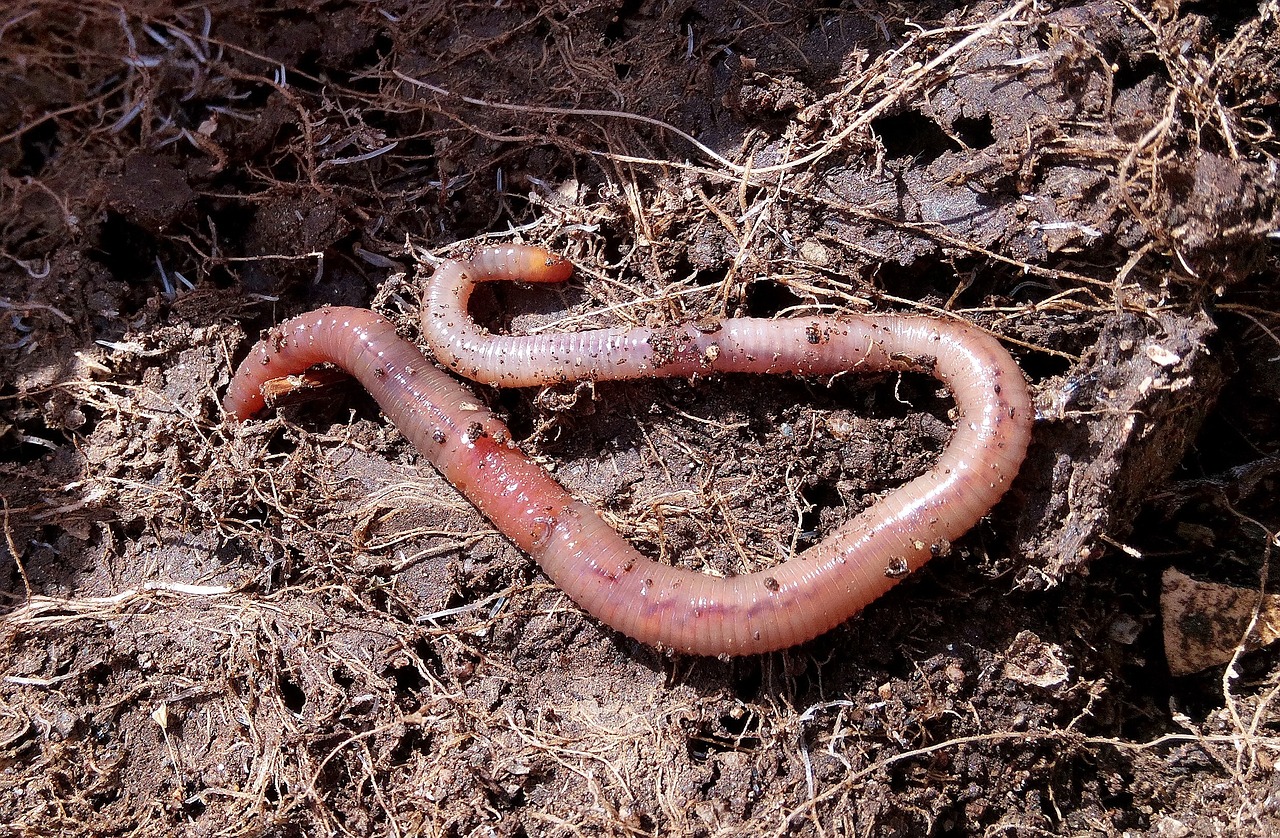
Economic Advantages of Vermiculture
This article explores how vermiculture, the practice of using worms for composting, contributes to sustainable farming practices, enhances soil health, and promotes environmental conservation.
Vermiculture involves the cultivation of earthworms for the purpose of organic waste management and soil enrichment, highlighting its significance in sustainable agricultural practices.
Vermicomposting transforms organic waste into nutrient-rich fertilizer, improving soil structure and fertility while minimizing landfill waste, thereby promoting a circular economy.
The introduction of vermicompost enhances microbial activity in the soil, leading to improved nutrient availability and better plant growth, which is essential for eco-friendly agriculture.
Vermicomposting increases microbial diversity in the soil, which plays a crucial role in nutrient cycling and plant health, ultimately supporting sustainable farming practices.
The organic matter from vermicompost helps improve soil aeration and water retention, creating a more conducive environment for plant roots and beneficial organisms.
Utilizing vermicompost can significantly reduce the reliance on chemical fertilizers, promoting healthier crops and reducing the risk of soil and water contamination.
Vermiculture not only supports environmental sustainability but also offers economic benefits to farmers through reduced input costs and increased crop yields. By integrating vermiculture into their farming practices, farmers can experience a remarkable shift in their financial landscape. This practice allows them to recycle organic waste, which not only cuts down on disposal costs but also provides a valuable resource for soil enrichment.
One of the most significant economic advantages is the cost-effectiveness of using vermicompost. Farmers who adopt this method can save on the expenses associated with chemical fertilizers, which can be quite high. In fact, studies have shown that using vermicompost can reduce fertilizer costs by up to 30% to 50% annually. This not only helps in lowering the overall production costs but also contributes to a more sustainable financial model for farmers.
Moreover, the demand for organic produce is on the rise. Consumers are becoming increasingly aware of the benefits of organic products, which creates market opportunities for farmers who embrace vermiculture practices. By producing high-quality organic crops, farmers can tap into premium markets, enhancing their profitability and market competitiveness. This shift can lead to a more resilient agricultural economy where farmers are not only surviving but thriving.
To illustrate the economic benefits of vermiculture, consider the following table:
| Economic Aspect | Traditional Farming | Vermiculture-Based Farming |
|---|---|---|
| Fertilizer Costs | High | Reduced by 30%-50% |
| Waste Disposal Costs | High | Minimal (utilized as compost) |
| Crop Yield | Standard | Increased due to better soil health |
| Market Demand | Stable | Growing for organic produce |
In conclusion, the economic advantages of vermiculture are not just theoretical; they are practical and impactful. By reducing costs and increasing market opportunities, farmers can create a sustainable and profitable farming system that benefits both their wallets and the environment.
- What is vermiculture? Vermiculture is the practice of cultivating earthworms for composting organic waste and enriching soil.
- How does vermicomposting benefit farmers economically? It reduces fertilizer costs, minimizes waste disposal costs, and increases crop yields, leading to better profitability.
- Can vermiculture help in organic farming? Yes, vermiculture is an essential part of organic farming as it provides a natural source of fertilizer and improves soil health.
- Is vermiculture environmentally friendly? Absolutely! It promotes recycling of organic waste and reduces reliance on chemical fertilizers, benefiting both the environment and agriculture.
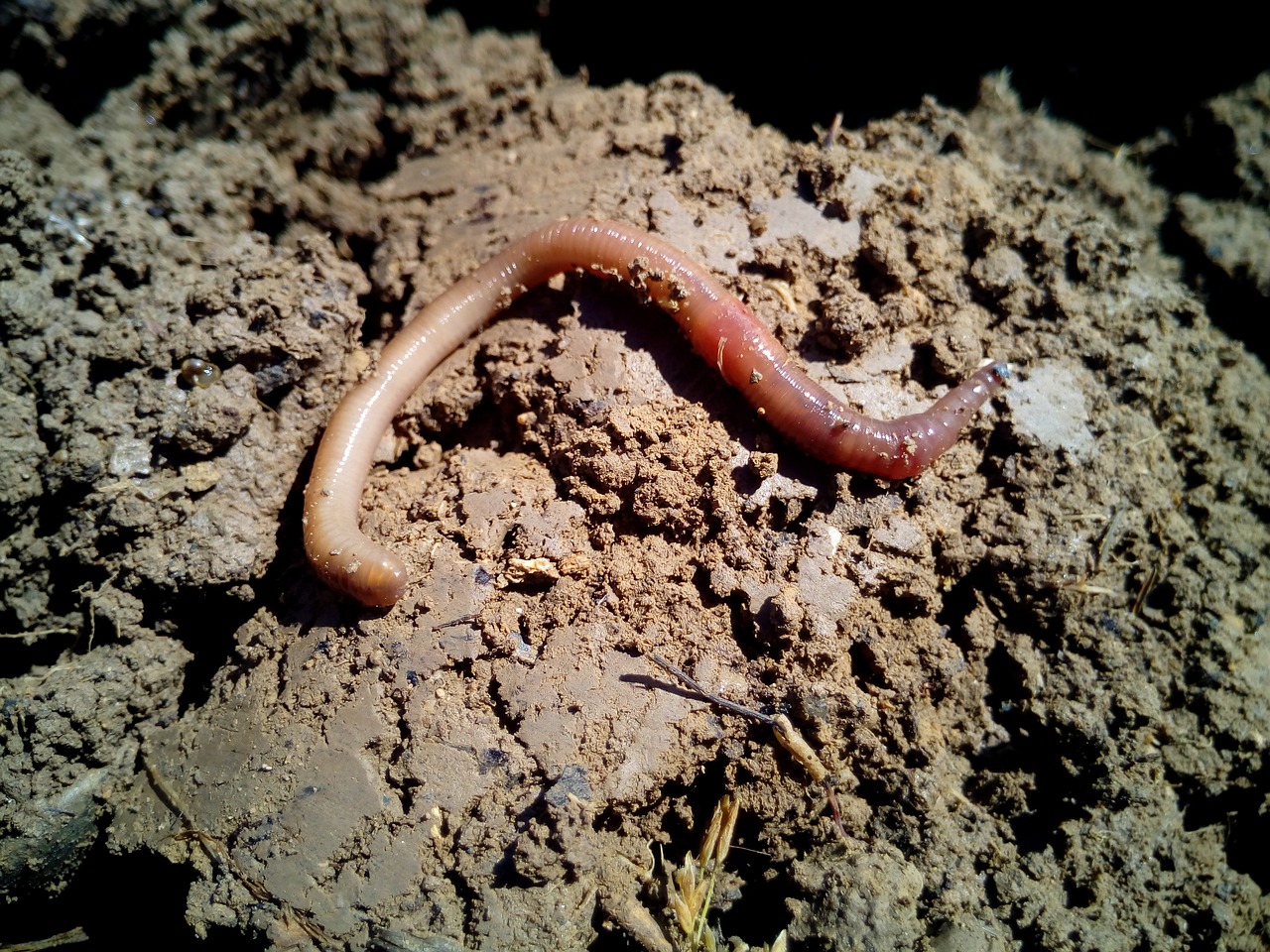
Cost-Effectiveness
When it comes to sustainable farming, is a crucial factor that can make or break a farmer's decision to adopt new practices. Vermiculture, the practice of using earthworms for composting, presents an incredible opportunity for farmers to not only enhance their soil health but also significantly reduce their overall costs. Imagine a scenario where you can turn waste into wealth, and that’s precisely what vermiculture offers!
By utilizing vermicompost, farmers can cut down on expenses associated with chemical fertilizers, which can be quite expensive. Traditional fertilizers can cost a pretty penny, and their price often fluctuates with market demand. In contrast, vermicompost can be produced using organic waste materials that are often readily available on the farm, such as vegetable scraps, crop residues, and even animal manure. This not only reduces the need for purchasing costly fertilizers but also minimizes waste disposal costs, creating a win-win situation for farmers.
Moreover, the initial investment in setting up a vermiculture system is relatively low compared to the long-term savings it offers. Farmers can start small with a simple worm bin and gradually scale up as they see the benefits. The return on investment can be substantial; for instance, one pound of worms can produce up to 1,000 pounds of vermicompost in a year! This rich organic matter can replace a significant portion of chemical fertilizers, allowing farmers to allocate their budgets more effectively.
Let’s break down some of the key economic advantages of vermiculture:
- Reduced Input Costs: By minimizing reliance on chemical fertilizers, farmers can save a considerable amount of money, allowing them to invest in other areas of their farm.
- Improved Crop Yields: Healthier soil leads to healthier plants, which can result in increased crop yields and, ultimately, more profit.
- Market Demand: With the rising consumer preference for organic products, farmers who adopt vermiculture can tap into lucrative markets, enhancing their profitability.
In addition to these benefits, vermiculture also promotes a more sustainable financial model for farmers. By creating a closed-loop system where waste is converted into valuable resources, farmers can enhance their resilience against economic fluctuations. It’s like having a safety net that not only cushions them from the volatility of chemical prices but also empowers them to produce their own fertilizers.
In conclusion, the cost-effectiveness of vermiculture is undeniable. It transforms waste into a valuable resource, reduces dependency on expensive chemical inputs, and opens up new market opportunities for farmers. As we strive for a sustainable agricultural future, embracing practices like vermiculture is not just smart economics; it’s a step towards a healthier planet.
- What is vermiculture? Vermiculture is the cultivation of earthworms for composting organic waste, which enhances soil health and fertility.
- How does vermicomposting save money? It reduces the need for chemical fertilizers and decreases waste disposal costs, leading to overall savings.
- Can I start vermiculture on a small scale? Absolutely! You can begin with a small worm bin and scale up as you see the benefits.
- What materials can I use for vermicomposting? You can use kitchen scraps, garden waste, and even animal manure as feed for the worms.
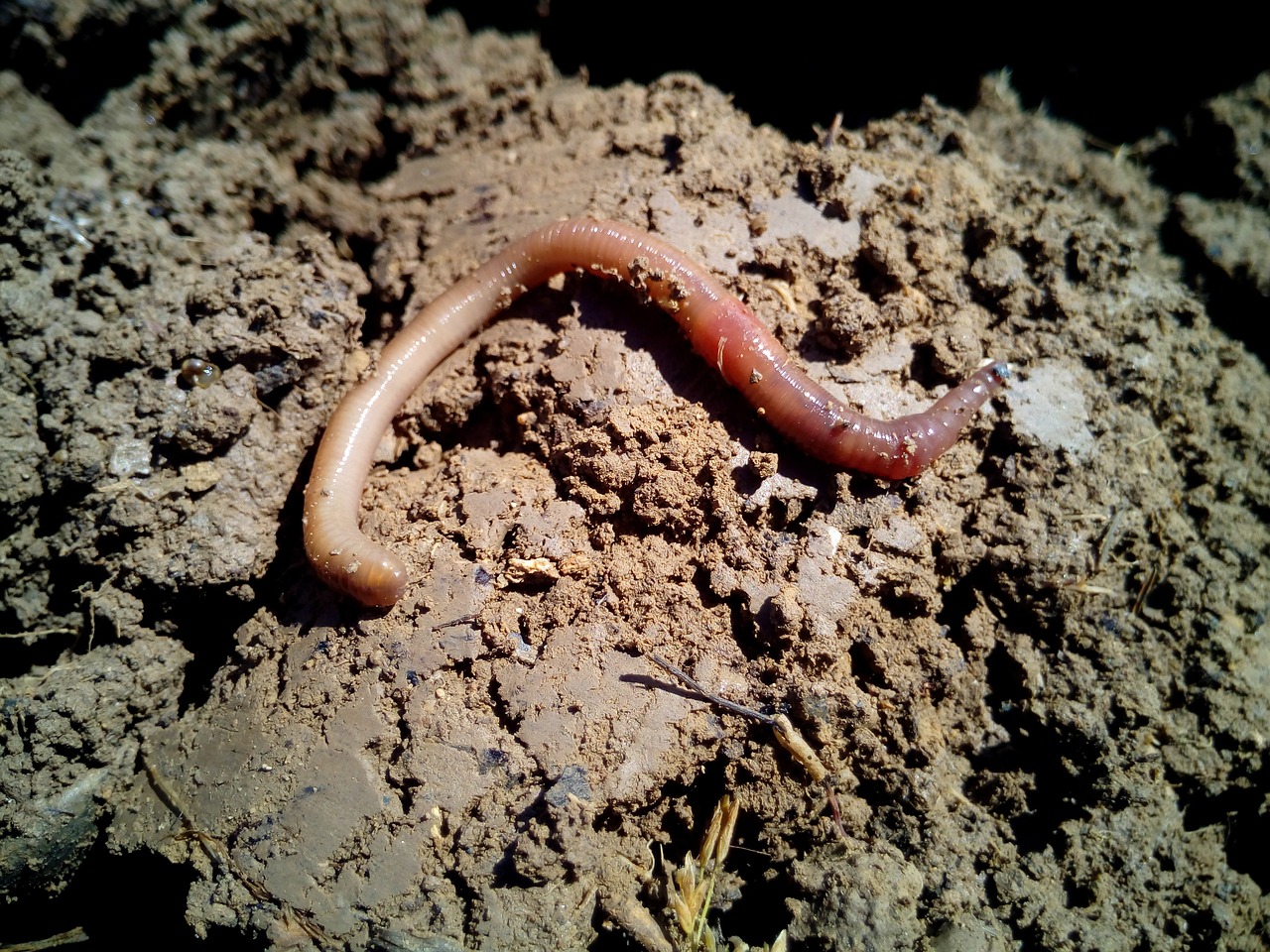
Market Opportunities
As the world shifts towards more sustainable practices, vermiculture emerges as a beacon of hope for farmers looking to align with this trend. The increasing consumer demand for organic produce has opened up a plethora of market opportunities for those who embrace vermiculture. Farmers who integrate worm composting into their operations not only contribute to environmental sustainability but also position themselves favorably in a competitive marketplace.
The organic food market is booming, with consumers becoming increasingly conscious of the food they consume and its impact on their health and the environment. According to recent studies, the global organic food market is expected to reach $500 billion by 2025. This surge in demand means that farmers who utilize vermicomposting can tap into this lucrative market, offering products that are not only organic but also enriched with the nutrients that vermicompost provides.
Moreover, farmers who adopt vermiculture practices can differentiate themselves in the crowded marketplace. By promoting the benefits of their organic produce—such as enhanced flavor, superior nutritional value, and environmentally friendly farming methods—they can attract a loyal customer base. This is particularly important in a world where consumers are willing to pay a premium for products that align with their values. For instance, a farmer who uses vermicompost can market their vegetables as “grown with nature’s best fertilizer”, appealing to eco-conscious consumers.
Additionally, there are various channels through which farmers can sell their vermiculture-enhanced products. These include:
- Local farmers' markets
- Community-supported agriculture (CSA) programs
- Organic grocery stores
- Online platforms and social media
By leveraging these channels, farmers can not only increase their visibility but also build direct relationships with their customers. This direct-to-consumer approach often results in higher profit margins compared to traditional distribution methods.
Furthermore, the rise of eco-friendly brands and businesses presents additional opportunities for farmers engaged in vermiculture. Many companies are actively seeking partnerships with local farmers who can supply organic products. By collaborating with these businesses, farmers can ensure a steady stream of income while contributing to the broader movement towards sustainability.
In summary, the market opportunities for farmers who embrace vermiculture are vast and varied. By aligning their practices with the growing demand for organic products, they can not only enhance their profitability but also play a significant role in promoting sustainable agriculture. As the saying goes, “What goes around, comes around”; by investing in the health of the soil and the environment today, farmers can reap the rewards tomorrow.
Q: What is vermiculture?
A: Vermiculture is the practice of cultivating earthworms for the purpose of composting organic waste and enriching soil.
Q: How does vermicomposting benefit soil health?
A: Vermicomposting enhances microbial activity, improves nutrient availability, and increases soil structure, which is crucial for healthy plant growth.
Q: Can vermiculture reduce the need for chemical fertilizers?
A: Yes, using vermicompost can significantly reduce reliance on chemical fertilizers, promoting healthier crops and minimizing environmental contamination.
Q: What are the economic advantages of vermiculture?
A: Vermiculture can lower costs associated with chemical fertilizers and waste disposal, while also increasing crop yields and opening new market opportunities.
Frequently Asked Questions
- What is vermiculture?
Vermiculture is the practice of cultivating earthworms to assist in organic waste management and enhance soil health. It's like having nature's little recyclers working for you, breaking down waste and turning it into nutrient-rich compost!
- How does vermicomposting benefit the environment?
Vermicomposting not only reduces landfill waste by recycling organic materials but also enriches the soil with essential nutrients. This process promotes a circular economy, making it a win-win for both the environment and farmers.
- Can vermicomposting improve soil health?
Absolutely! Vermicompost boosts microbial activity in the soil, which enhances nutrient availability. Healthier soil leads to better plant growth, making it crucial for eco-friendly agriculture.
- How does vermiculture reduce the need for chemical fertilizers?
By using vermicompost, farmers can significantly cut down on chemical fertilizers. This not only promotes healthier crops but also minimizes the risk of soil and water contamination, creating a safer environment.
- What are the economic benefits of adopting vermiculture?
Farmers can save money on chemical fertilizers and waste disposal by implementing vermiculture. Additionally, with the rising demand for organic produce, farmers can tap into new market opportunities, enhancing their profitability.
- Is vermiculture suitable for all types of farming?
Yes! Vermiculture can be integrated into various farming systems, whether it's small-scale gardens or large agricultural operations. It's a flexible solution that supports sustainable practices across the board.
- How do I get started with vermiculture?
Starting with vermiculture is easy! You can begin by setting up a worm bin using kitchen scraps and bedding materials. With a little care and attention, you'll soon have your very own composting system thriving with worms!


















